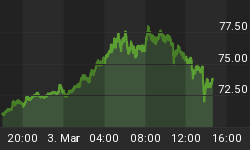"...With insurance in place, what's to fear from the global bubble in credit...?"
BEATING the market - the search for "alpha" - takes sharp thinking and a fast trigger finger. Just ask Nicole Montoya, a fund manager with AXA in Paris.
Back in October, she spotted that the cost of insuring bonds issued by Altadis, the cigar and cigarette maker, had slipped beneath the return that those bonds would pay above and beyond government debt.
Net result? Instant alpha, outperforming her benchmark!
Montoya picked up a chunk of Altadis debt, reports Bloomberg, and she also bought credit-default swaps (CDS) to protect against those bonds not paying out. Her strategy guarantees her investors will never lose, or so she thinks, not even if Altadis reneges on its debts and slips into default. Montoya's investors in the meantime will earn 0.62% per year above her benchmark, but only pay 0.49% per year for the CDS insurance.
You can see the logic, if not the attraction. Outperforming rock-solid European government bonds by little more than one-eighth of one per cent is not to be sniffed at, given that bond yields after inflation remain near multi-decade lows.
And with insurance in place, what's to fear?
"It's like a free lunch," grins another Parisian bond manager. Etienne Gorgeon manages €5 billion for Fortis. Using the same CDS trick, he's locked in returns of 4.31% - risk free each year - from bonds in TeliaSonera, the Swedish phone company. That puts him one-fifth of one per cent ahead of the yield paid by government bonds. Yet more instant alpha!
No one ever said bond funds should match mining stock futures for excitement, of course. Taking your age away from 100 to gauge the proportion of assets you should hold in fixed-income hardly counts alongside the Black-Scholes theory of options pricing, either. But one-fifth of one per cent?
It's not the fund managers you should keep an eye on, however. They're insured against default, after all. But if you were thinking this week that Chinese IPO investors and carry-trade hedge funds were most at risk in the markets, try the investment banks and insurance companies now selling credit default swaps on European corporate bonds instead.
Late last week, just as the Shanghai & Shenzen stock market index was touching new highs, the cost of European CDS sank to a new all-time low. Fewer corporate defaults made insuring corporate bonds look safer than ever - just as long as tomorrow turned out just like today. But the shake-out starting in Shanghai on Tuesday, however, caused a sharp jump in CDS prices. They leapt by more than a third in the first half of this week.
Fresh failures amongst US subprime lenders will be spooking the CDS insurers too, despite Ben Bernanke's assurances in Washington on Wednesday. And if CDS prices continue to rise, where will fund managers turn in their search for alpha?
How about the banana republics that can't grow bananas in Central Asia...?
"It makes sense to go to little countries with scarcity value," says Holger Friedrich at Union Investment in Frankfurt. She just bought bonds issued by little-known banks in Nigeria, Mongolia and Georgia. "You have all the future potential," she says, "which may not be priced in," she goes on. The trouble is, the price she's just paid doesn't allow for the potential outcome he least expects.
Let's hope that someone, somewhere, is crazy enough to offer Frau Friedrich CDS insurance on the bonds she just bought! Mongolia's population of 2.6 million live on an average of $5 a day, as Sebastian Boyd reports for Bloomberg - similar to Zimbabwe and Iraq. The country suffered banking crises in 1994, 1996 and 1998, followed by "difficulties" in 2000. Corruption is rife, with more than one in four households saying they've paid a bribe in the last 90 days.
But so what? Thanks to bonds managers like Friedrich, the Trade & Development Bank in Ulanbataar met with 10 times expected demand for its new bonds, issued last month. The first-ever foreign currency debt sold by a Mongolian company, TDB's bonds hit a wall of $570 million in orders from foreign investors. So the bank, naturally, took advantage of the Western world's mania for high-risk assets priced to perfection, raising the size of the issue by one quarter to $75 million, and cutting the yield by 0.5% to 8.75%.
Since the sale, incredibly, demand for TDB's bonds on the secondary market has pushed the yield lower still. By the start of this week, it paid less than the returns offered by similar-maturity bonds issued by Ford, for example. America's second-largest car maker has never defaulted on its debt in 104 years of doing business. It has assets worth 700 times what TDB in Mongolia can lay claim to.
"One knows that the US consumer lending market is on its last legs," says Thomas Au on TheStreet.com, "when lenders like Bank of America consider illegal immigrants a hot market for its loan products, because everything better has already been mined." Au's comments apply just as well to junk bonds issued in Georgia as they do to subprime mortgages lent in Glasgow.
At the top of the credit cycle, with lenders running out of people to lend to, "this seems like a case of trying to suck the last bit of juice from an already oversqueezed lemon," says Au, "an extreme application of the well known law of diminishing returns."
Time was, high risk borrowers had to pay high rates of return to attract cash from lenders. That time will return in due course. For now, however, the search for alpha amongst European fund managers is puffing a little more air into the global credit bubble each day.
















